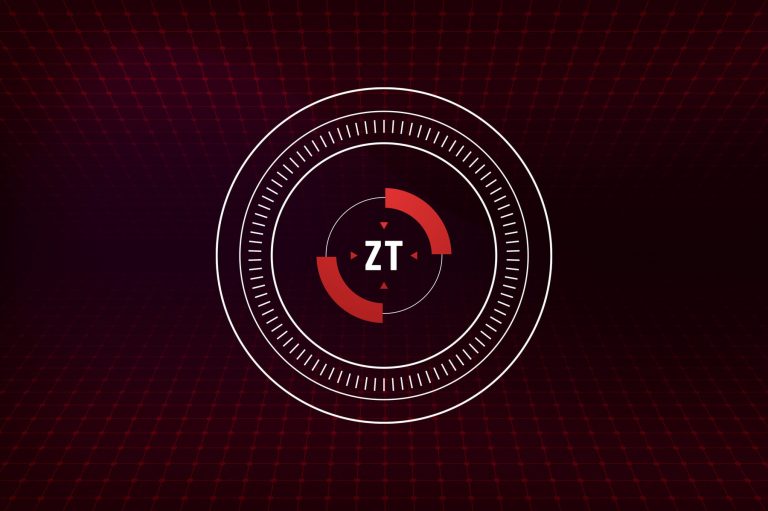Overview
The General Data Protection Regulation (GDPR) was introduced by the European Union (EU) to regulate the processing of personal data and to harmonize data protection laws across the EU. The GDPR replaces the 1995 EU Data Protection Directive and came into effect on May 25, 2018.
The GDPR was introduced to respond to changes in technology and the increasing amount of personal data that is being processed and stored by organizations. The regulation aims to protect the privacy rights of EU citizens and to give them more control over their personal data.
The GDPR sets out strict requirements for the processing of personal data, including the need for organizations to obtain the explicit consent of data subjects, the right of data subjects to access and control their personal data, and the obligation to report personal data breaches. The GDPR also requires organizations to implement appropriate technical and organizational measures to protect the security of personal data and to maintain records of their processing activities.
The introduction of the GDPR reflects a growing concern about the protection of personal data and the privacy rights of individuals. The regulation was introduced to ensure that personal data is processed in a transparent, secure, and lawful manner, and to give EU citizens more control over their personal data.
What does the GDPR affect?
The General Data Protection Regulation (GDPR) affects organizations located in the European Union (EU) and organizations outside the EU that process personal data of EU citizens.
The GDPR applies to the processing of personal data, which is defined as any information relating to an identified or identifiable natural person. This includes information such as names, addresses, email addresses, IP addresses, and genetic and biometric data.
The GDPR applies to a wide range of processing activities, including the collection, storage, use, transfer, and deletion of personal data. This means that the regulation affects organizations of all sizes and industries, from large multinational corporations to small businesses and sole traders.
Organizations that fail to comply with the GDPR can face significant fines, including fines of up to 4% of their global annual revenue or €20 million, whichever is higher. In addition to the financial penalties, non-compliance can also result in reputation damage, legal claims, and administrative sanctions.
What are the GDPR requirements?
The General Data Protection Regulation (GDPR) sets out several requirements for the processing of personal data by organizations located in the European Union (EU) and organizations outside the EU that process personal data of EU citizens. The following are some of the key requirements of the GDPR:
- Lawful, fair and transparent processing: Organizations must process personal data in a manner that is lawful, fair, and transparent. This includes obtaining the explicit consent of data subjects for the processing of their personal data, providing clear and comprehensive information about the processing of personal data, and ensuring that personal data is processed for specified and legitimate purposes.
- Data minimization: Organizations must limit the collection and processing of personal data to that which is necessary for the purpose for which it was collected. Personal data must be accurate, relevant, and limited to what is necessary for the purpose of processing.
- Data security: Organizations must implement appropriate technical and organizational measures to protect the security of personal data, including measures to prevent unauthorized or unlawful processing, accidental loss or destruction, and unauthorized access.
- Data subject rights: The GDPR sets out several rights for data subjects, including the right to access, correction, and deletion of their personal data, the right to object to the processing of their personal data, and the right to data portability. Organizations must have processes in place for responding to data subject rights requests and must comply with these requests within specified timeframes.
- Data breach notification: Organizations must have procedures in place for detecting, reporting, and investigating personal data breaches. In the event of a personal data breach, organizations must communicate the breach to affected data subjects and to the relevant supervisory authority, if required.
- Data protection impact assessments (DPIAs): Organizations must carry out DPIAs for high-risk processing activities, including activities that involve the processing of special categories of data or the large-scale processing of personal data. DPIAs are used to identify and mitigate privacy risks associated with processing activities.
- Appointment of a Data Protection Officer (DPO): Organizations are required to appoint a DPO if they are a public authority, carry out large-scale processing of special categories of data, or engage in systematic monitoring of data subjects. The DPO will be responsible for advising the organization on its GDPR obligations and ensuring compliance with the regulation.
- International data transfers: Organizations must comply with GDPR requirements for international data transfers, including ensuring that appropriate safeguards are in place for transfers to countries outside the European Economic Area (EEA).
- Record keeping: Organizations must maintain a record of their processing activities, including the purposes of processing, categories of data processed, categories of data subjects, and details of third-party recipients. This record must be updated regularly and must be available to the relevant supervisory authority upon request.
These are some of the key requirements of the GDPR, but there may be other specific requirements or considerations that are relevant to your organization. It is always best to consult with a specialist in data protection law to ensure full compliance with the GDPR.
Sample GDPR compliance checklist for organizations:
- Conduct a data protection impact assessment (DPIA) to identify and assess the privacy risks associated with your processing activities.
- Appoint a Data Protection Officer (DPO) if required, or ensure that there is a designated person responsible for data protection within your organization.
- Update your privacy notice and ensure that it is transparent, comprehensive, and easily accessible to data subjects.
- Review your data collection and processing activities to ensure that they are lawful, fair, and transparent. Obtain explicit consent from data subjects where required.
- Implement appropriate technical and organizational measures to protect the security of personal data, such as encryption, firewalls, and access controls.
- Develop procedures for responding to data subject rights requests, including access, correction, and deletion requests.
- Implement processes for detecting, reporting, and investigating personal data breaches.
- Review your contracts with third-party processors to ensure that they comply with the GDPR and provide adequate protection for personal data.
- Ensure that you maintain accurate records of your processing activities and make them available to the relevant supervisory authority upon request.
- Regularly review and update your GDPR compliance measures to ensure that they are effective and up-to-date.
Please note that this is a general checklist and may not be exhaustive or applicable to all organizations. It is always best to consult with a specialist in data protection law to ensure full compliance with the GDPR.
How is GDPR Compliance Enforced?
The enforcement of the General Data Protection Regulation (GDPR) is carried out by supervisory authorities, which are independent public authorities established in each EU member state. The supervisory authorities are responsible for supervising the application of the GDPR and for enforcing its provisions.
The following are some of the enforcement measures that supervisory authorities may take in the event of non-compliance with the GDPR:
- Administrative fines: Supervisory authorities may impose administrative fines on organizations that breach the GDPR. Fines can be substantial and can reach up to 4% of an organization’s global annual turnover or €20 million (whichever is higher).
- Orders to cease processing: Supervisory authorities may issue orders requiring organizations to cease processing personal data if the processing is found to be non-compliant with the GDPR.
- Orders to rectify: Supervisory authorities may issue orders requiring organizations to rectify specific aspects of their processing activities in order to bring them into compliance with the GDPR.
- Ban on processing: In serious cases, supervisory authorities may impose a ban on the processing of personal data.
- Orders to erase: Supervisory authorities may issue orders requiring organizations to erase specific categories of personal data if the processing of that data is found to be non-compliant with the GDPR.
- Information notices: Supervisory authorities may issue information notices requiring organizations to provide specific information related to their processing activities, including information about their data protection policies, procedures, and processes.
- Sanctions and reprimands: Supervisory authorities may impose sanctions and reprimands on organizations, individuals, or their directors in order to ensure compliance with the GDPR.
These are some of the enforcement measures that supervisory authorities may take in the event of non-compliance with the GDPR. It is always best to consult with a specialist in data protection law to ensure compliance with the GDPR and to minimize the risk of enforcement action.
What are the Real World GDPR Penalties?
The General Data Protection Regulation (GDPR) provides for substantial administrative fines for organizations that breach its provisions. The fines can reach up to 4% of an organization’s global annual turnover or €20 million (whichever is higher).
In practice, the amount of the fine that an organization may receive will depend on a variety of factors, including the severity of the breach, the number of individuals affected, the level of cooperation with supervisory authorities, the level of preparation and investment in data protection, and the impact of the breach on individuals’ rights.
Some real-world examples of GDPR fines include:
- British Airways: In 2019, British Airways was fined £183 million ($230 million) for a data breach that affected approximately 400,000 customers.
- Marriott International: In 2020, Marriott International was fined £99 million ($124 million) for a data breach that affected approximately 339 million guests.
- Google: In 2019, Google was fined €50 million ($57 million) by the French data protection authority (CNIL) for violating the GDPR’s rules on transparency and providing adequate information to users about its data processing activities.
- Uber: In 2017, Uber was fined €600,000 ($680,000) by the Dutch data protection authority for failing to adequately protect the personal data of its customers and employees.
These are some real-world examples of GDPR fines. It is important to note that these fines are not exhaustive and that the actual amount of the fine that an organization may receive will depend on the specific circumstances of each case. The GDPR provides for substantial administrative fines and organizations should take all necessary measures to ensure compliance with the GDPR to minimize the risk of enforcement action.
Does the GDPR apply to any specific industries?
The General Data Protection Regulation (GDPR) applies to all organizations that process personal data, regardless of their industry or sector. This includes both public and private sector organizations, as well as non-profit organizations.
The GDPR applies to the processing of personal data in the context of the activities of an establishment of a controller or a processor in the EU, regardless of whether the processing takes place in the EU or not. This means that organizations outside the EU must also comply with the GDPR if they process personal data of individuals in the EU in the context of their activities.
Some industries that are particularly affected by the GDPR include:
- Healthcare: The GDPR has a significant impact on healthcare organizations, as they process sensitive personal data, such as health records and medical histories.
- Financial services: Financial services organizations must comply with the GDPR when processing personal data, including customer data and financial transactions.
- Retail: Retail organizations must comply with the GDPR when processing customer data, including personal information, purchase history, and payment information.
- Technology: Technology companies, including social media platforms and cloud service providers, must comply with the GDPR when processing personal data, including user data and online behavior.
These are some of the industries that are particularly affected by the GDPR. However, it is important to note that the GDPR applies to all organizations that process personal data, regardless of their industry or sector. Organizations should assess their data processing activities and take all necessary measures to ensure compliance with the GDPR.
Can I achieve GDPR compliance on my own?
Achieving General Data Protection Regulation (GDPR) compliance is a complex and ongoing process that requires the investment of time, resources, and expertise. While it is possible for an organization to achieve GDPR compliance on its own, it is often more effective and efficient to work with a professional service provider that has the experience and expertise to help organizations navigate the requirements of the GDPR.
Here are some of the factors to consider when deciding whether to achieve GDPR compliance on your own or to work with a professional service provider:
- Size of your organization: The size of your organization will impact the resources required to achieve and maintain GDPR compliance. Smaller organizations may be able to achieve compliance on their own, while larger organizations may require the help of a professional service provider to ensure compliance.
- Complexity of your data processing activities: The complexity of your data processing activities will impact the resources required to achieve and maintain GDPR compliance. Organizations that process large amounts of personal data or sensitive personal data may require the help of a professional service provider to ensure compliance.
- Available resources: Organizations that have the resources, including time, expertise, and budget, may be able to achieve GDPR compliance on their own. Organizations that do not have these resources may need to work with a professional service provider to ensure compliance.
- Risk tolerance: Organizations that are risk averse may prefer to work with a professional service provider to ensure compliance with the GDPR and minimize the risk of enforcement action.
These are some of the factors to consider when deciding whether to achieve GDPR compliance on your own or to work with a professional service provider. Organizations should assess their specific circumstances and make a decision that best suits their needs and resources.
What happens if my company is not in compliance with the GDPR?
If a company is not in compliance with the General Data Protection Regulation (GDPR), it may face significant financial penalties and reputational damage. The GDPR provides for strict enforcement measures, including administrative fines, to ensure that organizations take the necessary steps to protect the personal data of individuals.
Here are some of the consequences of non-compliance with the GDPR:
- Administrative fines: The GDPR provides for administrative fines of up to 4% of an organization’s annual global turnover or €20 million (whichever is greater) for certain violations, such as failing to obtain valid consent for the processing of personal data or failing to implement appropriate technical and organizational measures to ensure the security of personal data.
- Reputational damage: Non-compliance with the GDPR can damage an organization’s reputation and public image, as it shows a lack of commitment to protecting the personal data of individuals.
- Litigation: Individuals may take legal action against organizations that violate their rights under the GDPR, including the right to have their personal data erased or the right to data portability.
- Loss of business: Organizations that are not in compliance with the GDPR may lose business as customers and clients may choose to do business with organizations that are in compliance with the GDPR and take the protection of personal data seriously.
These are some of the consequences of non-compliance with the GDPR. Organizations should take the necessary steps to ensure compliance with the GDPR to avoid these consequences and to protect the personal data of individuals.
What data does the GDPR cover?
The General Data Protection Regulation (GDPR) applies to personal data, which is defined as any information related to an identified or identifiable natural person. This includes a wide range of information, such as names, addresses, email addresses, telephone numbers, and financial information.
The GDPR also applies to sensitive personal data, which includes information about a person’s race, ethnicity, political opinions, religious or philosophical beliefs, trade union membership, health, and sexual orientation.
In addition to traditional personal data, the GDPR also applies to new forms of personal data, such as IP addresses, cookies, and location data, when they can be used to identify an individual.
The GDPR applies to the processing of personal data by controllers and processors in the European Union (EU), regardless of whether the processing takes place in the EU or not. The GDPR also applies to the processing of personal data by controllers and processors outside the EU, if the processing is related to the offering of goods or services to individuals in the EU or to the monitoring of their behavior within the EU.
Organizations should assess the types of personal data they process and take the necessary steps to ensure compliance with the GDPR in order to protect the rights of individuals with respect to their personal data.
What is a controlled under GDPR?
Under the General Data Protection Regulation (GDPR), a controller is defined as a natural or legal person, public authority, agency, or other body which, alone or jointly with others, determines the purposes and means of the processing of personal data.
The controller is responsible for ensuring that the processing of personal data is in compliance with the GDPR, including obtaining the necessary consent from individuals for the processing of their personal data, implementing appropriate technical and organizational measures to ensure the security of personal data, and cooperating with the supervisory authority in the event of an investigation.
Examples of controllers under the GDPR include businesses, public authorities, and non-profit organizations. In some cases, multiple organizations may be considered joint controllers if they determine the purposes and means of the processing of personal data together.
It is important for controllers to understand their responsibilities under the GDPR and to take the necessary steps to ensure compliance with the regulation in order to protect the personal data of individuals and to avoid enforcement action by the supervisory authority.
What is a processor under GDPR?
Under the General Data Protection Regulation (GDPR), a processor is defined as a natural or legal person, public authority, agency, or other body which processes personal data on behalf of the controller.
The processor is responsible for carrying out the instructions of the controller and for ensuring that the processing of personal data is carried out in accordance with the GDPR. This includes implementing appropriate technical and organizational measures to ensure the security of personal data and cooperating with the supervisory authority in the event of an investigation.
Examples of processors under the GDPR include data centers, cloud service providers, and marketing companies.
It is important for processors to understand their responsibilities under the GDPR and to take the necessary steps to ensure compliance with the regulation. Processors should also enter into a written contract with the controller that sets out their responsibilities and obligations with respect to the processing of personal data. This contract should include provisions on the security of personal data, the deletion of personal data, and the provision of information to the controller in the event of a data breach.
What is a sub-processor under GDPR?
Under the General Data Protection Regulation (GDPR), a sub-processor is defined as a processor who processes personal data on behalf of another processor (the main processor) and is acting on behalf of the controller.
The sub-processor has the same obligations as the main processor with respect to the processing of personal data, including implementing appropriate technical and organizational measures to ensure the security of personal data and cooperating with the supervisory authority in the event of an investigation.
It is important for the main processor to ensure that any sub-processor it engages is capable of providing sufficient guarantees with respect to the technical and organizational measures for the protection of personal data and that the sub-processor has the necessary level of expertise to carry out the processing of personal data.
The main processor should also enter into a written contract with the sub-processor that sets out the obligations and responsibilities of the sub-processor with respect to the processing of personal data, including provisions on the security of personal data, the deletion of personal data, and the provision of information to the controller in the event of a data breach. This contract should be binding on the sub-processor and should provide for the same level of protection for personal data as provided for under the contract between the controller and the main processor.
What is a DPO under GDPR?
Under the General Data Protection Regulation (GDPR), a Data Protection Officer (DPO) is an independent person appointed by an organization to oversee the processing of personal data and to ensure compliance with the GDPR. The DPO can be a 3rd party consultant or an internal employee.
The DPO is responsible for monitoring internal compliance with the GDPR, providing advice and guidance on the application of the GDPR, and cooperating with the supervisory authority on matters related to the protection of personal data. The DPO should also act as a point of contact for individuals who have questions or concerns about the processing of their personal data.
Not all organizations are required to appoint a DPO under the GDPR. However, organizations that carry out large-scale systematic monitoring of individuals or processing of special categories of personal data are required to appoint a DPO. Public authorities and bodies must also appoint a DPO.
It is important for organizations to appoint a DPO who has the necessary professional qualities and expertise to carry out the role, and who is independent and able to carry out their duties without conflict of interest. The DPO should also be provided with sufficient resources and support to carry out their responsibilities effectively.
At Prodigy 13 we can help you achieve 100% compliance with GDPR or serve as DPO for your organization, for more information please review our Managed and Assisted compliance services.














